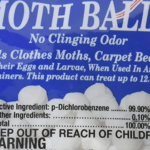Chemical compounds in household products like mothballs and air fresheners can cause cancer by blocking the normal process of “cell suicide” in living organisms, according to a new study spearheaded by the University of Colorado at Boulder. Naphthalene in mothballs and para-dichlorobenzene, or PDCB, found in some air fresheners, were shown to block enzymes that […]
Blocking sugar structures on viruses and tumor cells
The laboratory directed by Arne Skerra, Professor of Biological Chemistry, has its focus on designing artificial binding proteins for therapeutic applications. The laboratory’s current research findings are paving the way for the development of new types of binding proteins for biological sugar structures, which play a significant role in cancer as well as infectious diseases. […]
Pawpaw Shows Promise In Fighting Drug-Resistant Tumors
The pawpaw tree, which bears the largest fruit native to North America, may bear new fruit for scientists seeking ways to fight cancer. Purdue University researcher Jerry McLaughlin, working with doctoral student Nicholas Oberlies, has found compounds in the bark of the tree that have shown preliminary success in fighting some drug- resistant cancers. The […]
Childhood cancer caused largely by environmental factors, report finds
For children in the U.S., cancer is the leading cause of death from disease. Worldwide, cancer has become so prevalent and devastating that some may use the phrase “like curing cancer” when describing something unfeasible or highly complicated. Yet in September, a team of more than 60 stakeholders and leaders in the health, science, business, policy and advocacy sectors […]
Mushroom compound suppresses prostate tumors
A mushroom used in Asia for its medicinal benefits has been found to be 100 per cent effective in suppressing prostate tumour development in mice during early trials, new Queensland University of Technology (QUT) research shows. The compound, polysaccharopeptide (PSP), which is extracted from the ‘turkey tail’ mushroom, was found to target prostate cancer stem […]
Opposite effect: Protein widely known to fight tumors also boosts cancer growth
Search for a description of “p53” and it becomes clear that this human protein is widely known for its cancer-fighting benefits, leading to its renown as “the guardian of the genome.” Scientists at the University of California San Diego have published a new study challenging that description. Studying the “wild type” version of p53 (WTp53), […]





